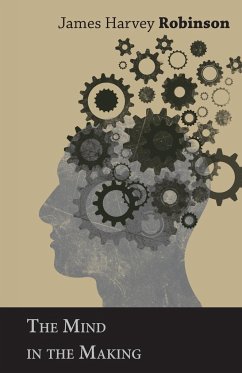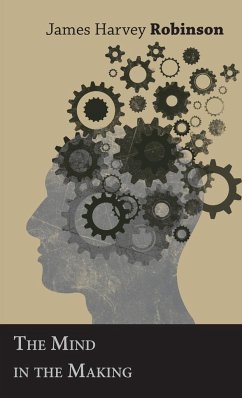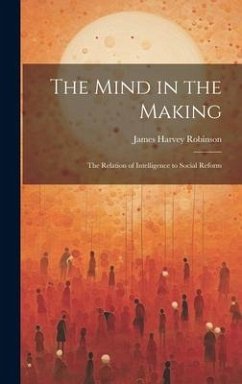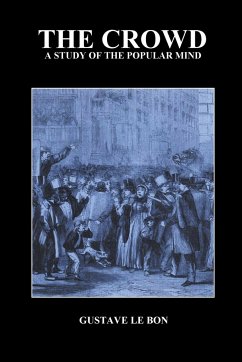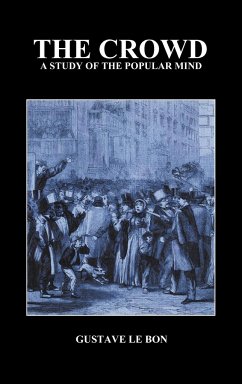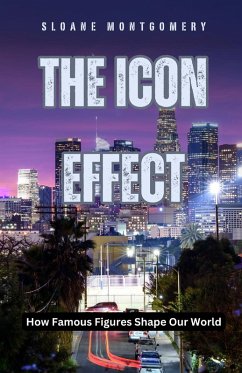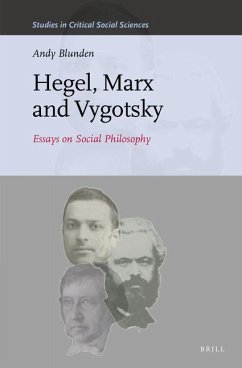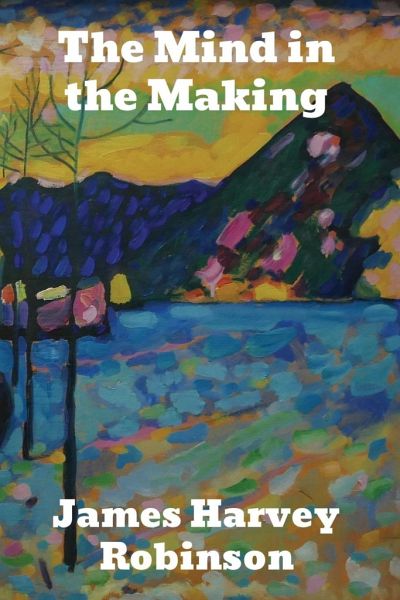
The Mind in the Making
The Relation of Intelligence to Social Reform
Versandkostenfrei!
Versandfertig in 1-2 Wochen
14,99 €
inkl. MwSt.
Weitere Ausgaben:

PAYBACK Punkte
7 °P sammeln!
The Mind in the Making is a book to awaken every reader to a real understanding of why he thinks and acts as he does. It is the well-known historian's straightforward account of how our intelligence has evolved into the mental habits of modern life. No book for popular reading shows so graphically that our thinking remains medieval in a world that has become complex and modern. It will show you whether your thinking is ahead of the times or behind them. If some magical transformation could be produced in men's ways of looking at themselves and their fellows, no inconsiderable part of the evils...
The Mind in the Making is a book to awaken every reader to a real understanding of why he thinks and acts as he does. It is the well-known historian's straightforward account of how our intelligence has evolved into the mental habits of modern life. No book for popular reading shows so graphically that our thinking remains medieval in a world that has become complex and modern. It will show you whether your thinking is ahead of the times or behind them. If some magical transformation could be produced in men's ways of looking at themselves and their fellows, no inconsiderable part of the evils which now afflict society would vanish away or remedy themselves automatically. If the majority of influential persons held the opinions and occupied the point of view that a few rather uninfluential people now do, there would, for instance, be no likelihood of another great war; the whole problem of "labor and capital" would be transformed and attenuated; national arrogance, race animosity, political corruption, and inefficiency would all be reduced below the danger point.





